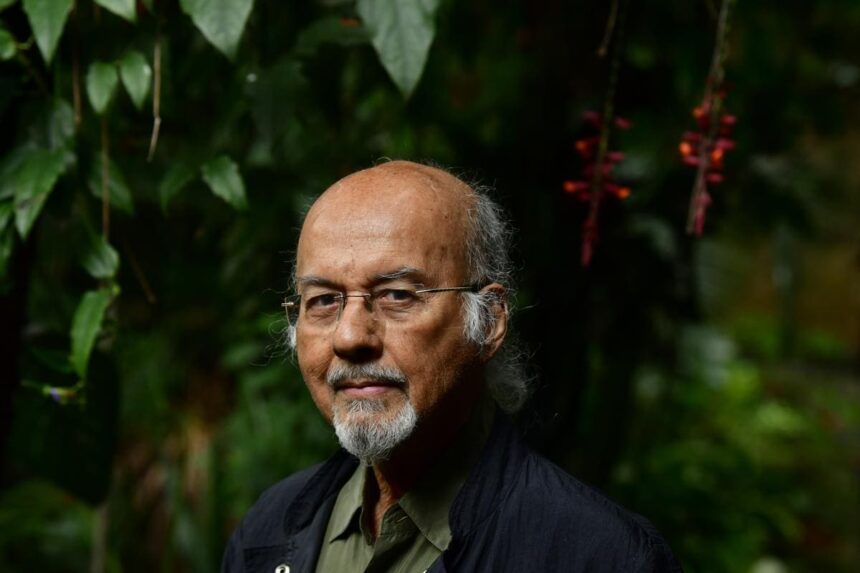T.J.S. George, a highly regarded journalist, author, and columnist in India, passed away on Friday at the age of ninety-seven due to complications related to aging.
Family sources disclosed that he had recently undergone renal surgery and had been receiving treatment at a private hospital for a week prior to his death.
Born on May 7, 1928, in Kerala, George was the fourth child of magistrate Thayil Thomas Jacob and Chachiamma Jacob. He completed his schooling and went on to graduate with honors in English literature from Madras Christian College, a foundation that cultivated his enduring passion for writing. George began his journalistic career in the early 1950s, establishing himself as a prominent voice in both Indian and international journalism.
His first job was with The Free Press Journal in Bombay (now Mumbai) in 1950. Over the years, he worked with prestigious organizations, including the International Press Institute, The Searchlight, and the Far Eastern Economic Review. He is best known for founding Asiaweek in Hong Kong and later returned to India to serve as Editorial Adviser for The New Indian Express.
George was recognized as one of India’s leading columnists, using his platform to fight against social injustice, corruption, and religious intolerance. In his later years, he became a critical voice against Hindutva populism, cautioning about the risks it posed to democracy. His weekly column, “Point of View,” appeared in The New Indian Express for an impressive twenty-five years until June 2022, serving as a venue for challenging conventional narratives and promoting truth in governance. His independence of thought and clarity made him a notable figure in public discourse.
In addition to journalism, George was a prolific author and political commentator. His works extended from political analysis to cultural biographies, earning him international acclaim. Notable publications include “Lee Kuan Yew’s Singapore,” “The Life and Times of Nargis,” “Krishna Menon: A Biography,” and his latest book, “The Dismantling of India: In 35 Portraits,” which offers incisive essays on notable figures across various sectors. These contributions cemented his reputation as a keen observer of contemporary history who was unafraid to address authority and cultural mythos.
His impact on literature and journalism garnered numerous accolades. He was awarded the Padma Bhushan in 2011, one of India’s highest civilian honors, alongside the Rajyotsava Award in 2007 for his contributions to journalism and literature. Further recognitions included the Vakkom Moulavi Memorial Award in 2024, the Kesari Media Award and Kamala Surayya Award in 2017, the Azeekodu Award in 2013, the Basheer Puraskaram in 2008, the Mohammed Koya Journalism Award in 2005, and the Patrika Academy Award in 2001, reflecting his wide-ranging respect across linguistic, cultural, and regional lines.
Tributes flowed in following his death, with the Press Club of Bangalore calling him “a towering figure whose voice, spanning decades, set the gold standard for integrity and insightful commentary.” Karnataka Chief Minister Siddaramaiah characterized him as “a true public intellectual who enriched Indian journalism for over six decades and inspired readers to think, question, and engage.”
Although originating from Kerala, George spent much of his life in Bengaluru. He is survived by his children, writer and poet Jeet Thayil and journalist Sheba Thayil. His wife, Ammu George, predeceased him. His funeral is scheduled for Sunday at the Hebbal crematorium, where family, friends, and colleagues will honor a man whose writing significantly influenced an era.
Tags: T.J.S. George, veteran journalist, obituary, journalism, Indian media
Hashtags: #Veteran #journalist #T.J.S #George #passes










